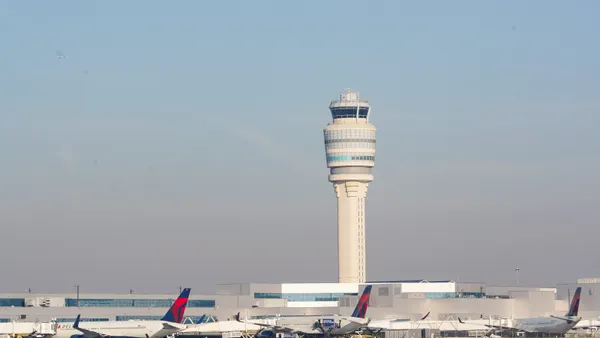Dive Brief:
- California commuter rail agency Caltrain will have to wait a little bit longer to find out if the Federal Transit Administration will come through with a $647 million grant to help it electrify a San Francisco Bay Area train system, according to the Orange County Register.
- The FTA made an abrupt turn and said it would hold off on making its decision so that the project could be included and reviewed with other 2018 federal budget items.
- California Republicans reportedly lobbied the FTA to scrap Caltrain's application pending an audit of the California High Speed Rail Authority's beleaguered $64 billion bullet train project. Caltrain officials said the delay could kill the electrification project.
Dive Insight:
Electrification of the Bay Area line, a portion of which the bullet train would share, would help CHSRA in its mission to get a route up and running in Northern California. Caltrain, which was planning to have the FTA money in hand so that it could start bidding out the project, has already authorized certain project preconstruction and design services, which are almost complete.
The bullet train has been hit with legal challenges over the electrification project. The CHSRA agreed to use $819 million of voter-approved bond money to go toward electrification, but critics argue the bond as originally presented to the public did not include that particular scope of work; therefore, it can't modify the bond after the fact. This latest hurdle has left the rail authority unable to deliver matching funds, which puts future federal funding in jeopardy.
The CHSRA's high-speed rail project, which would connect southern and northern California, has been under fire since several articles in the Los Angeles Times suggested that the agency misrepresented costs to gain legislative approval for the project, was behind in land acquisitions and had greatly underestimated what it would require to punch through the Tehachapi and San Gabriel Mountains north of Los Angeles. In fact, CHSRA officials decided to forego the planned inaugural route out of Los Angeles in favor of a Bay Area leg to speed things up and provide service at a lower initial cost.
The bullet train has been under a microscope ever since, and the authority had to pay more than $60 million to one of its lead contractors, Tutor Perini, for delay-related charges. Most recently, the Times reported that the system could end up with a $3.6 billion cost overrun, which the CHSRA denied.












